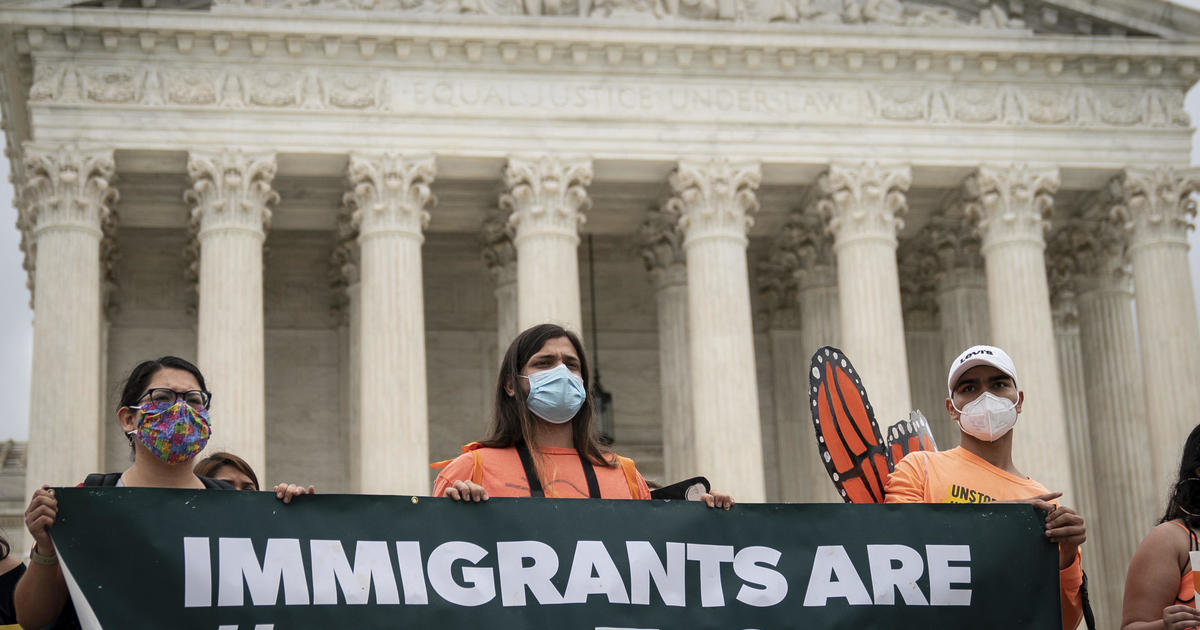Complying with a recent court order, the Trump administration on Monday reinstated a program created by President Obama to shield undocumented immigrants who came to the U.S. as minors from deportation, announcing it would accept initial applications for the first time in three years.
The U.S. Department of Homeland Security said it would administer the Deferred Action for Childhood Arrivals (DACA) program under the guidelines crafted by the Obama administration in 2012. Starting Monday, DHS said it would grant approved applicants work permits and deportation deferrals that last for two years and allow DACA-holders to request permission to travel abroad under certain circumstances.
The restoration of Mr. Obama’s signature immigration policy, mandated by a federal judge in Brooklyn on Friday, is a major victory for more than 640,000 current DACA recipients, as well as an estimated 300,000 undocumented immigrant teenagers and young adults who could be eligible to apply for the program.
DACA’s unlikely survival during President Trump’s tenure represents yet another setback in his administration’s effort to dismantle Mr. Obama’s domestic policy achievements.
Antonio Alarcon, 26, a DACA recipient and plaintiff in one of the lawsuits challenging its termination, said he is somewhat surprised the program has been revived during the final days of Mr. Trump’s presidency. But Alarcon noted that he has always been confident in the spirited and years-long advocacy effort that young undocumented immigrants and their allies staged to preserve DACA.
“I was skeptical but I knew the power of our community,” Alarcon, who works with the advocacy group Make the Road New York, told CBS News. “We kept fighting. We took to the streets. We went to the courts.”
Students and supporters of DACA rally in downtown Los Angeles, California on November 12, 2019.
FREDERIC J. BROWN
In September 2017, then-Attorney General Jeff Sessions announced the Trump administration would wind down DACA, which he denounced as an unconstitutional abuse of executive authority that encouraged unauthorized immigration.
But DACA outlived Sessions, who was ousted in 2018, and withstood a years-long legal battle that ultimately reached the Supreme Court, which ruled in June that the Trump administration did not follow federal administrative law when it moved to end the program.
“I don’t think there’s any immigration attorney in the country who would tell you they thought DACA would be fully in its 2012 shape in December 2020 of the Trump administration,” Karen Tumlin, a lawyer in one of the DACA court cases and the founder of the Justice Action Center, told CBS News. “It is absolutely remarkable but I think it’s a testament to the ferocity of immigrant young people who have allies in the courtroom and allies across the country.”
Monday’s improbable restoration, however, may not be DACA’s final fate. DHS said in its public notice Monday that it “may seek” to appeal the order issued by Judge Nicholas Garaufis of the U.S. District Court in Brooklyn.
Republican attorneys general are also asking a federal judge in Texas to declare DACA unlawful. Judge Andrew Hanen, who has previously said DACA is likely illegal, has scheduled a hearing on this case for December 22.
The case in Texas could complicate the incoming Biden administration’s expected efforts to protect DACA recipients from deportation, especially if Hanen kills the program. President-elect Biden, a Democrat, has vowed to retain DACA and to work with Congress to place its recipients on a pathway to U.S. citizenship — an effort that may not make it through a Republican-led Senate.
Garaufis, the federal judge in Brooklyn, ordered DACA’s full reinstatement after concluding in November that Acting DHS Secretary Chad Wolf did not have the legal authority to shutter the program to new applicants and limit protections for current recipients. Garaufis determined Wolf had been unlawfully appointed because DHS did not follow legal requirements governing appointments for the department’s leadership.
In his Friday order, Garaufis set aside a memo issued by Wolf in July that had suspended DACA and shortened the validity period of work permits from two years to 12 months. On Monday, DHS said it would notify more than 65,000 immigrants who received one-year DACA notices that their benefits would be extended to two years.
To be eligible for DACA, applicants must have arrived to the U.S. before they were 16, lived in the country since at least 2007 and earned a high school diploma, a GED or served honorably in the military. Immigrants with serious criminal records, including any felonies, are ineligible for DACA.
DACA does not allow its recipients to request green cards or U.S. citizenship.
